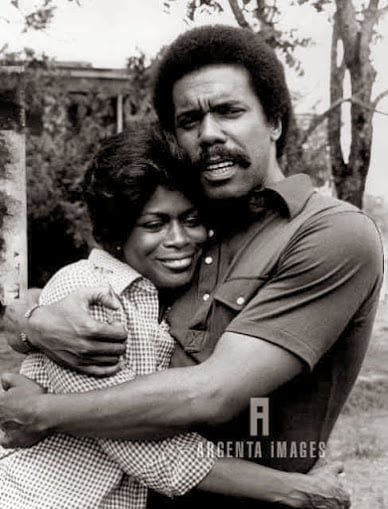
A classic throwback photo. with the grand lady of stage and film, Cicely Tyson, from the film “Just An Old Sweet Song” (circa 1976) This particular post is in celebration of her new freshly published memoir “Cicely Tyson: Just As I Am”. Over the years we’ve worked together successfully on stage, in film, and on TV, our creative collaboration was truly magical! Congratulations Cicely on your important new book!
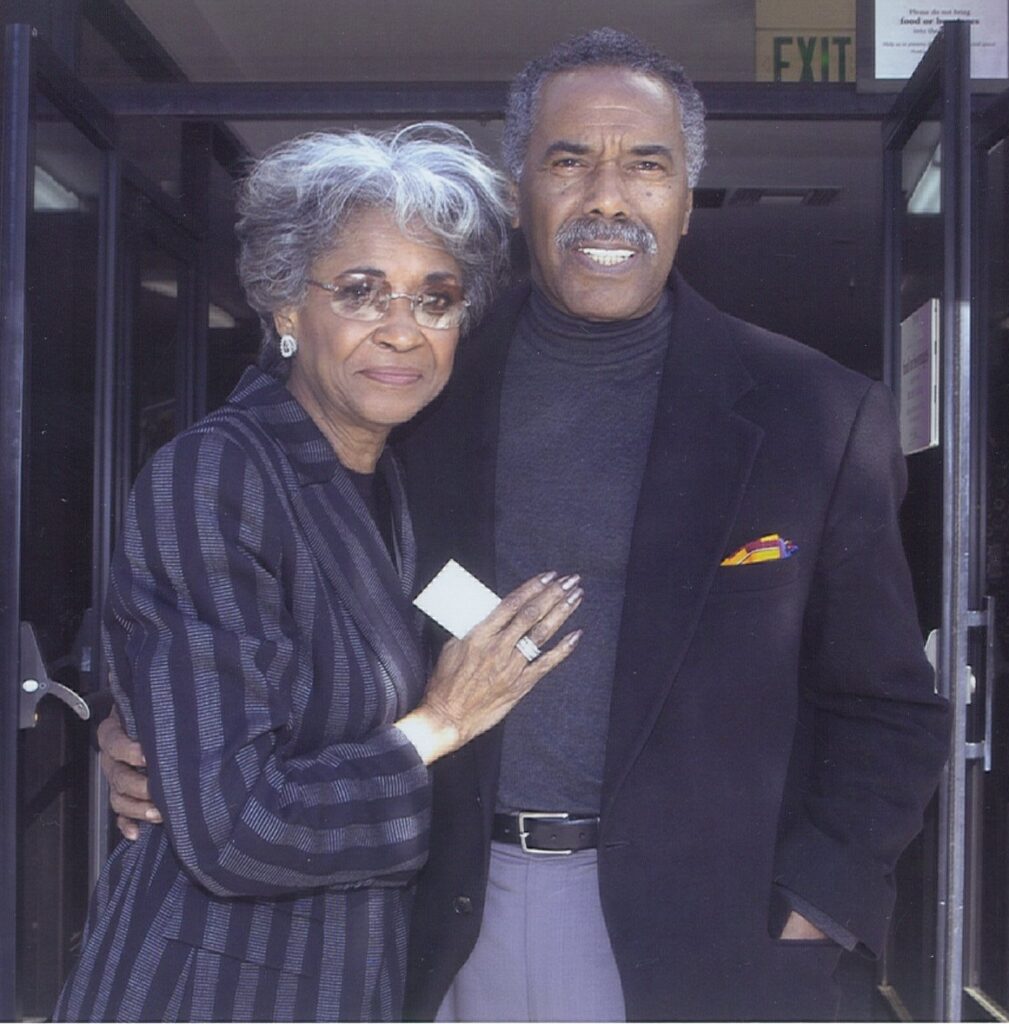
Nancy Wilson and Robert Hooks
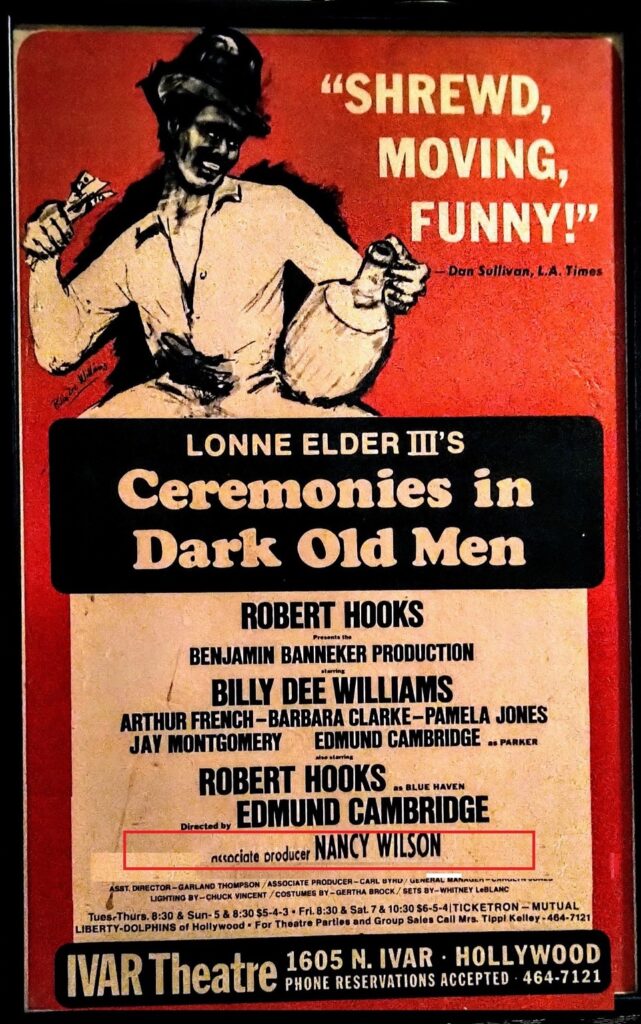
The great, gorgeous, and iconic vocalist Nancy Wilson (And an excellent actor also!) was a big fan and supporter of my New York Negro Ensemble Company. She would always say to me how very much she wanted to learn the dynamics of play production. So, when I produced Lonne Elder III’s “Ceremonies in Dark Old Men” in Los Angeles in 1970 I invited Nancy to join me as Associate Producer on the show. She was excited, eager, and elated at the opportunity to learn to play budgeting, finding the proper venue, recruiting top designers, casting actors, and designing play promotion. I never doubted that she would excel at all of it and indeed she was a producer in much more than title only. A professional to her very core in all aspects of the business.
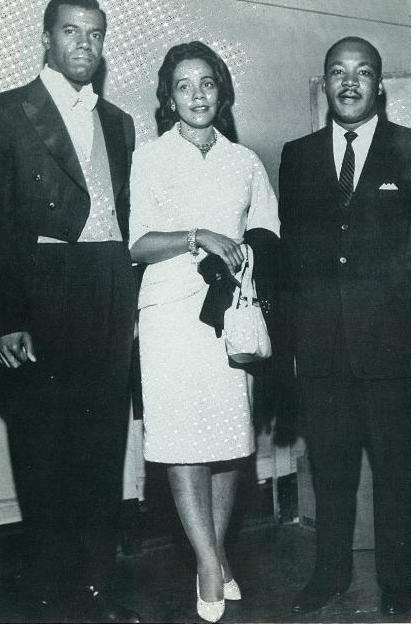
Weeks before the historic March on Washington, Rev. Dr. Martin Luther King Jr. and his extraordinary First Lady Coretta Scott King visited backstage after an inspired (because THEY were in attendance) performance of Jean Genet’s “The Blacks” (circa 1963). It was at dinner that night that Martin encouraged me to continue to create Black theatre for our communities and the larger world because it was a political act as much as any march or demonstration was. BTW, Coretta demonstrated her innate acting chops (as she had also been a singer earlier in her life) during one of my character’s provocative and flirtatious monologues. Normally addressed to a random female in the audience, it took all my impulsive courage to address it to her in the first row she was magnificent in her theatricality, and Martin was encouraging, smiling, and fascinated. This is a Bert Andrews photo taken backstage at the famed St.Marks Playhouse. The Kings loved the show and all the performances and made it clear to us that we should keep creating live theatre with important messages for Black folk. I’ve been doing that in theatre since!
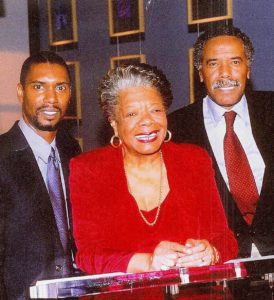
Kevin Hooks, Maya Angelou, and Robert Hooks
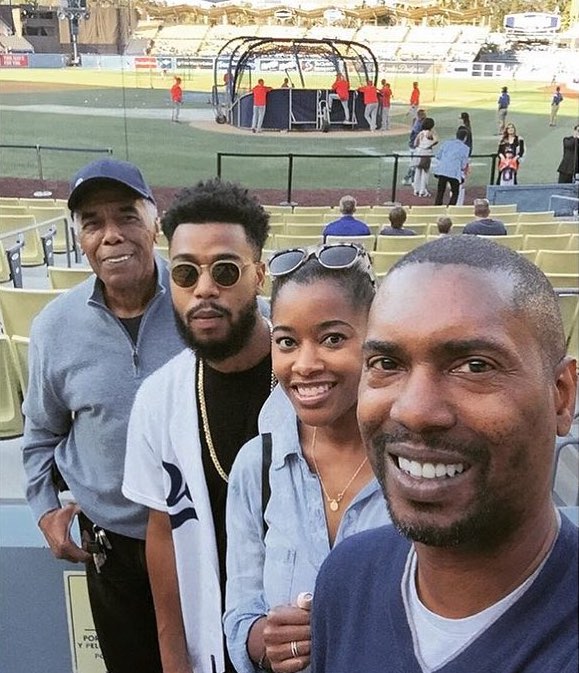
3 generations of Hooks filmmakers with Robert Hooks, Michael Cary Hooks, Christiana Hooks, and Kevin Hooks.
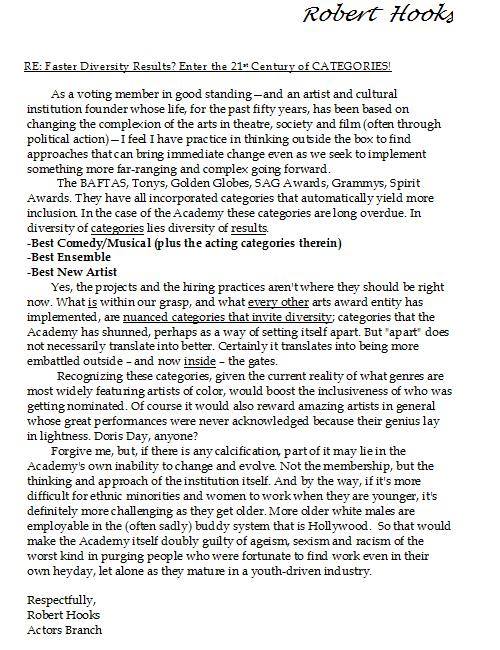
The letter below was sent yesterday to the Academy as one possible approach to their diversity dilemma. Over the past week, I’ve responded separately to so many friends and colleagues about my feelings that a boycott, in this instance, creates no substantive value. So I share this letter here as an efficient way of expressing my partial views on the current situation.
